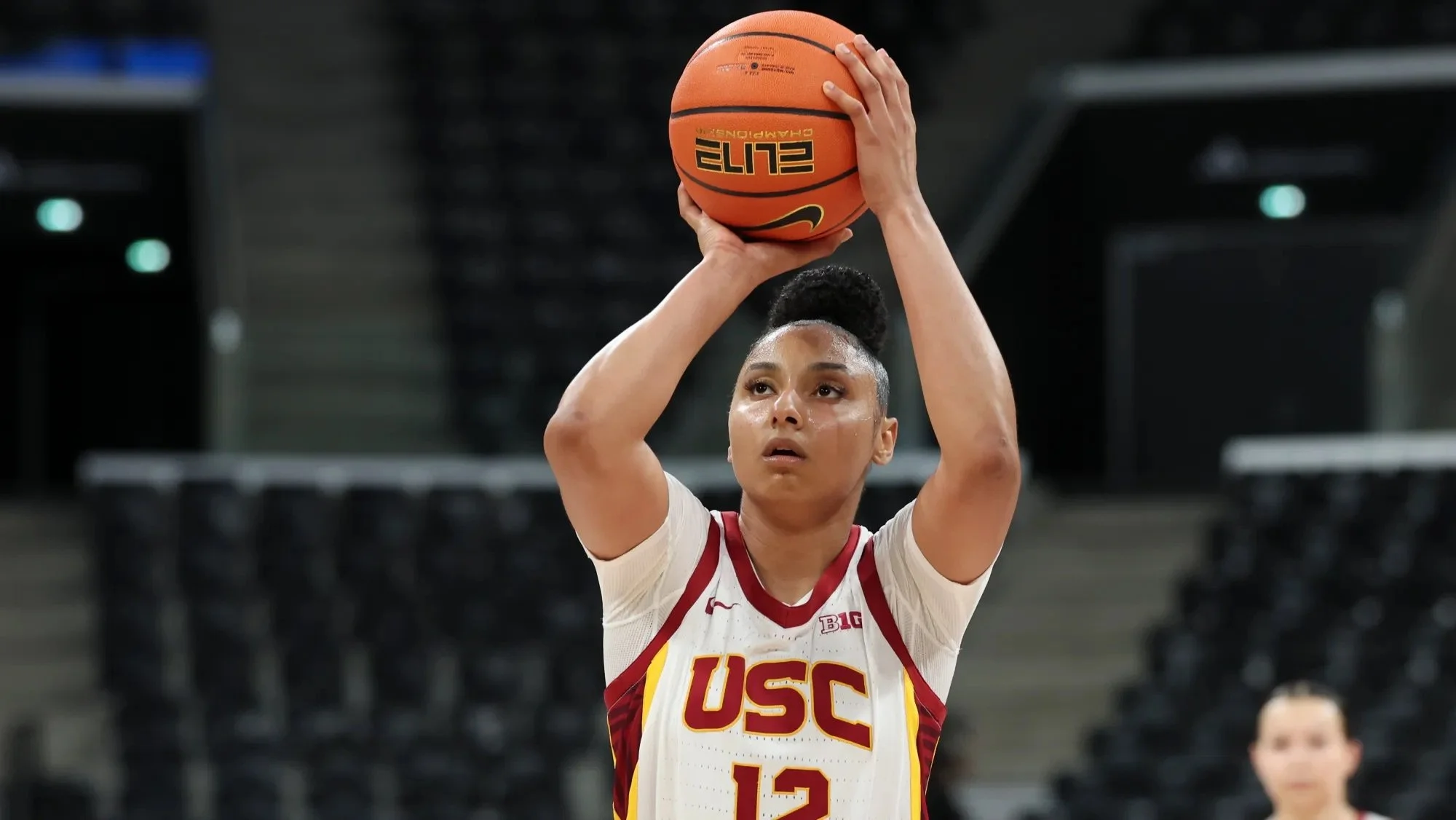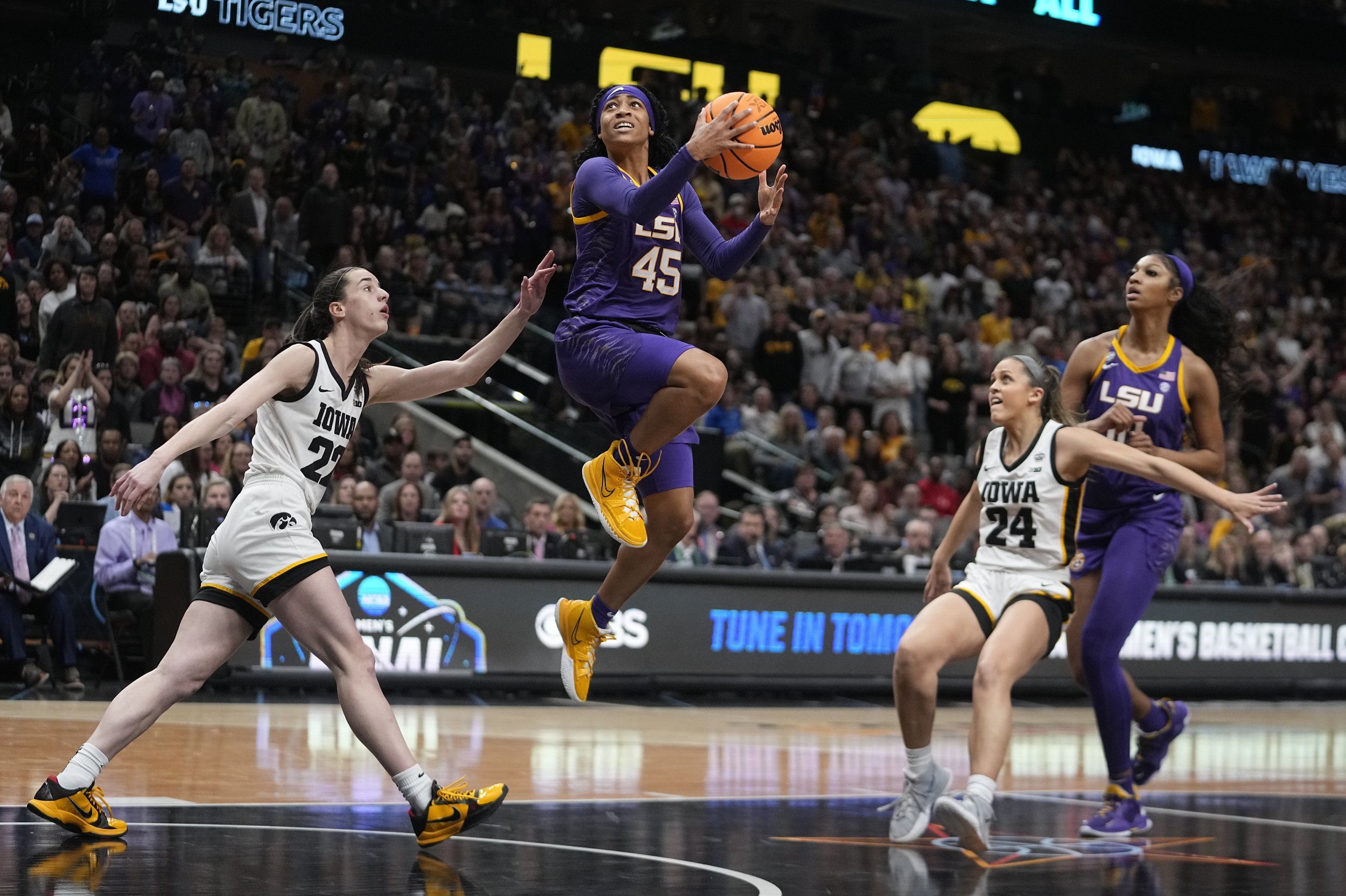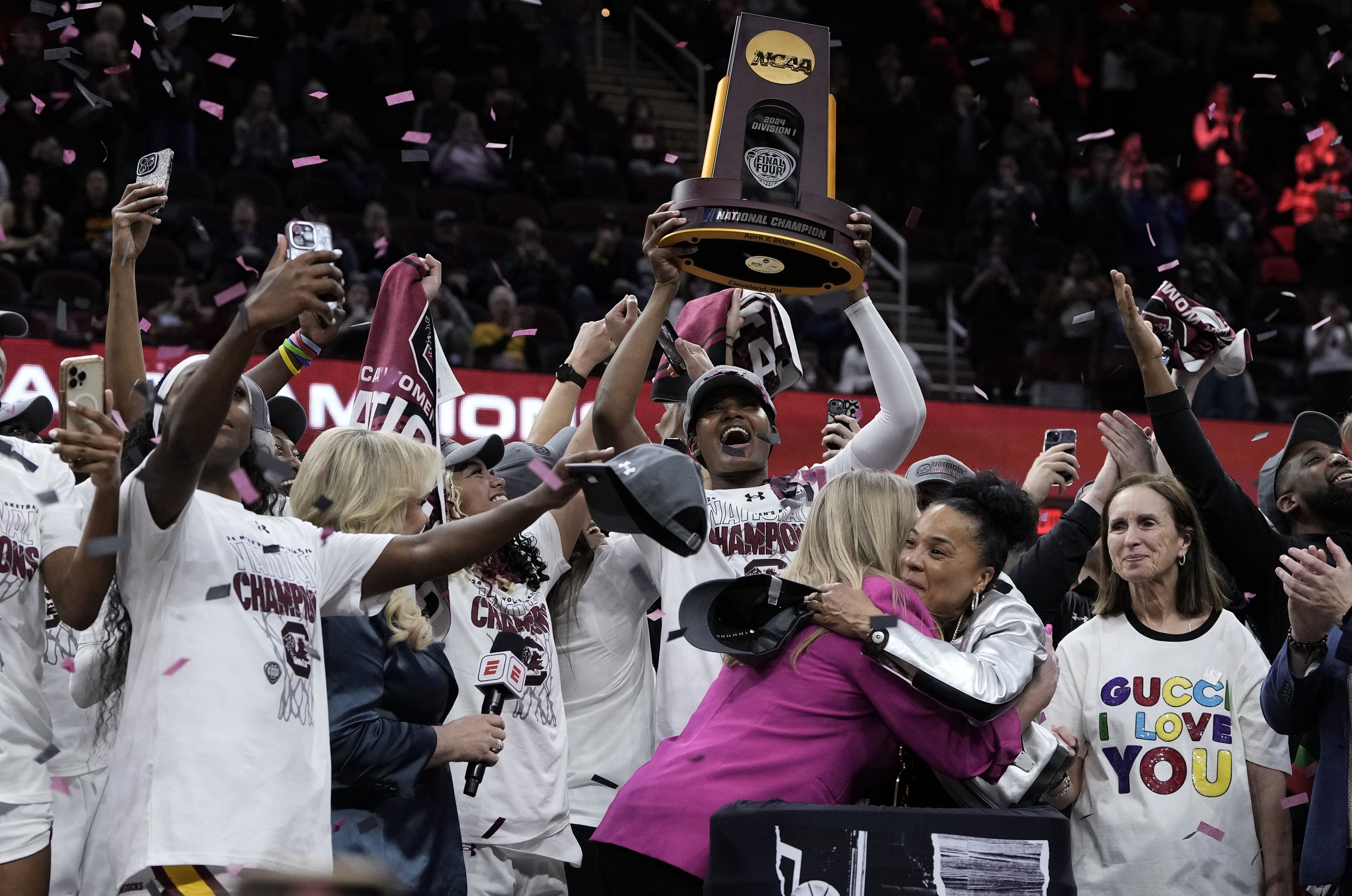The Monumental Rise of Women's College Basketball
Caitlin Clark. Cameron Brink. Paige Bueckers. Angel Reese. JuJu Watkins.
This is probably not the first time you have heard these names. These former and current college basketball players have become household names over the past few years, serving as a testament to the rapidly increasing popularity of women's college basketball. As steps continue to be taken to grow the sport (shoutout to the NCAA for approving paying women's teams to play in March Madness!), we wanted to provide the inside scoop on why and how women's college basketball became the celebrated sport it is today.
Before we can discuss how we arrived at this point, we need to start with our origins. Women's sports, in general, have faced decades of challenges, including inadequate funding, limited media coverage, and a lack of overall interest. This disparity in women's college basketball became glaringly evident during the NCAA tournament in March 2021 when images and videos highlighting the differences between the men's and women's gym facilities went viral.
A comparison of the men’s and women’s conditions for the NCAA tournament in 2021. (@alikershner/X)
This spark of controversy ignited a flame of interest in women's college basketball, introducing the idea that maybe the sport wasn't as popular as the men's simply because they weren't treated as worthy of being so (i.e., providing equal resources and promotion). Later that fall, the NCAA conducted a gender equity review in light of the outrage in March. The actions taken due to the review, including "pursuing marketing and promotional opportunities for Division I Men's and Women's Basketball Championships" (NCAA, 2021), became the first building blocks of change. However, the flame lit in 2021 needed fuel to keep shining a light on the sport, and that fuel would come in the form of some incredible talent.
Caitlin Clark is undoubtedly the trailblazer in the rise of women's college basketball. The former Iowa basketball star and current player for the Indiana Fever has a career filled with historic achievements. During her four years at Iowa, the 3-point sharpshooter captured the attention of millions, becoming the NCAA Division I all-time scoring leader, surpassing records for both women and men. She also set the single-season record for the most points scored in NCAA Division I women's basketball during her senior year in 2024. These remarkable accomplishments are just two among many that have established her as the face of women's college basketball.
Clark's success has not been solitary. Defensive standout Cameron Brink was pivotal in helping Stanford win the Pac-12 regular season championship all four years she was there, securing the Pac-12 tournament title in two of those years and a national championship during her freshman season. Brink finished her college career as Stanford's all-time leader in blocks.
Despite facing various injuries, Paige Bueckers has emerged as a leader for her UConn team and recently became the fastest player in program history to score 2,000 career points. Rebound specialist Angel Reese led LSU to a national championship victory over Caitlin Clark and the Iowa Hawkeyes during her junior season. She achieved her 34th double-double and broke the record for the most double-doubles in a single season in NCAA Division I history.
Current USC star JuJu Watkins was recognized as ESPN's Freshman of the Year and was the runner-up for Player of the Year for the 2023-2024 season. She led the scoring in 26 out of the 30 pre-NCAA tournament games she participated in, scoring 30 or more points in 13 of those games.
These extraordinary women have not only gained fame for their remarkable skills on the basketball court, but they have also played a significant role in elevating the profile of women's college basketball off the court through advertisements, commercials, sponsorships, and public appearances.
Scene from the 2023 National Championship game (AP)
An essential factor in the rise of women's college basketball is the strong fan bases that have developed. Unlike the NBA or NCAA Men's Basketball, where players frequently transfer teams yearly, female athletes typically remain at their chosen university for their entire college careers. This continuity allows fans to follow their favorite players consistently, helping teams build dedicated fan bases that invest in each season.
Additionally, this stability enables teams to grow over time, with coaches like Dawn Staley at South Carolina and Kim Mulkey at LSU establishing themselves as dominant figures in the sport. Their success creates expectations for the future, encouraging fans to return for more action. For instance, during the 2023 NCAA tournament, 10 million viewers watched the championship game between Iowa and LSU. When these two teams faced off again in the Elite 8 in 2024, the viewership rose to over 12 million.
The University of South Carolina team after winning the 2024 National Championship (AP)
If athletes are first allowed to be seen, they can gain the public's attention and prove they are worthy of increased visibility through media coverage, more significant resources from the NCAA, and expanded marketing from businesses. And if they are promoted, the people will respond. Last year's championship game had 18.7 million viewers - the largest audience for any basketball game in five years. It also marked the first time the women's national championship had more viewers than the men's game.
Caitlin Clark. Cameron Brink. Paige Bueckers. Angel Reese. JuJu Watkins.
It's not just the current female basketball stars that have gained recognition; many former players have inspired and paved the way for them, including the last two coaches who won national championships. Additionally, talented teammates have contributed to their achievements.
This surge in recognition is also a result of people speaking out about inequality in the sport, prompting the NCAA to take significant steps toward gender equity. The sports media landscape began to highlight these women and their impressive performances, capitalizing on the excitement surrounding them.
Fans have taken notice of the entertainment value in women's college basketball, forming connections with the players, teams, and coaches. Moreover, those players and coaches often stay with their schools, building legacies and dedicated fanbases.
All of these factors have come together to spark a remarkable surge in recognition and attention for women's college basketball, and I am confident that the sport will continue to thrive for a long time to come.









